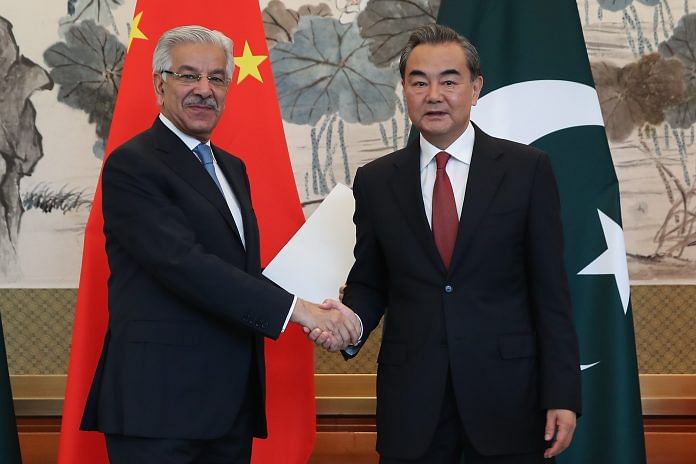US President has threatened Pak with ‘dire consequences’, but any incursions or drone strikes will have a disastrous effect on the region.
Donald Trump is notorious for announcing his administration’s policies through tweets. So it did not come as surprise when he began his new year with a tweet accusing Pakistan of giving Washington “nothing but lies and deceit”. He warned of dire consequences, without specifying what punitive action Washington is considering against its estranged ally.
True to his style, Trump sounded crude, but there is nothing new in his latest statement that has not been said by the US administration in the past. It is indeed a sign of the relations between the two countries reaching a breaking point.
Not surprisingly, Islamabad’s response to the Trump tweet is equally terse. “We will soon show the world the difference between facts and fiction,” foreign minister Khawaja Asif retorted in a tweet. He also dismissed the US demand to “do more” as absurd.
Trump’s tweet came amid an exchange of harsh words between Washington and Islamabad since the US President announced his administration’s latest National Security Strategy. While announcing the controversial policy, the US President declared that he was putting Pakistan on “notice” to fulfil its “obligation” to help America, “because it receives massive payments” from Washington every year.
But Trump’s humiliating diatribe seems to have made Islamabad more defiant and brought a rare unity among the political parties in condemning the US policy. Indeed, the relations between the two countries have been estranged for many years, but are now increasingly becoming hostile.
Over the past few months, there has been flurry of visits of senior Trump administration officers to Islamabad to find common ground for the two countries to cooperate in fighting the Taliban insurgency in Afghanistan. But they have failed to remove the hurdles. The more recent was the visit of US Secretary of Defence James Mattis and Joint Chiefs of Staff Chairman Gen. Joseph Dunford last month.
Days before the visit, the US Congress dropped a provision that linked reimbursements to Pakistan with a demonstrable action against Lashkar-e-Taiba (LeT). Predictably, Pakistani authorities welcomed the move. But the pressure on Islamabad to take action against the Haqqani network seems to have intensified.
The fiercest faction of the Afghan Taliban insurgent militia, the Haqqani network is alleged to be operating from its base along the Pakistan-Afghanistan border. Last week, the US withheld half of the $700 million disbursement to Pakistan for deploying forces along this border. The withheld amount would only be released after demonstrable proof of Pakistan’s action against the militant network.
Meanwhile, the Trump administration is considering withholding $255 million from a fund meant to provide military training and equipment to Pakistan, adding to already existing cuts on reimbursements.
Islamabad strongly rejects the allegations of Afghan insurgents using its soil for cross-border attacks, and accuses Washington of scapegoating Pakistan for its failure in Afghanistan. As a sort of warning, the US has intensified drone strikes targeting the insurgents along the Pak-Afghan border. The latest visits of American officials and cut in aid failed to mend the fences.
It is now quite evident that such arm-twisting and threats by the US President would not help win Pakistan’s full cooperation. It has become much more difficult with the weakening of the American leverage over the years and Islamabad diversifying its relations with other regional powers.
One major factor for Pakistan rejecting the American pressure is Islamabad’s growing strategic relations with China. Any incursion of the US forces on the pretext of hot pursuit of the Taliban insurgents into Pakistan or use of drone strikes in the mainland would have disastrous consequences for the entire region.
Zahid Hussain is a journalist and author in Pakistan



